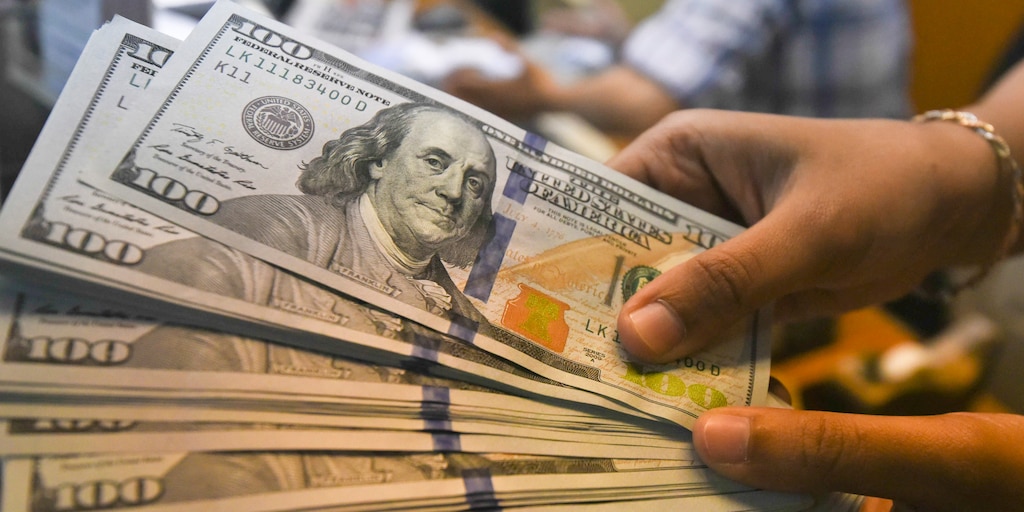 Reuters
Reuters
- Giving $1,000 to every American adult, as some have proposed, might not be enough to forestall a US recession, Andrew Levin, a former special adviser to the Federal Reserve, told CNBC on Tuesday.
- “The problem for the US economy is a lot of cities are shutting down and people staying home, not going out to restaurants, not going out shopping, not buying cars,” he said. Those trends are likely to drastically reduce consumer spending, the key driver of economic activity in the US.
- “I don’t see how we’re going to avoid having a recession,” Levin said.
- Visit Business Insider’s homepage for more stories.
Even giving $1,000 to every American adult might not be enough to prevent a US recession, Andrew Levin, a former special adviser to the Federal Reserve, told CNBC on Tuesday.
Republican Sens. Mitt Romney and Tom Cotton, Democratic Reps. Tim Ryan and Ro Khanna, and Jason Furman, one of the Obama administration’s top economists, have all called for the US government to give $1,000 checks to buttress the economy against the coronavirus outbreak.
The White House signaled it might pursue such a policy at a press conference on Tuesday.
“We’re looking at sending checks to Americans immediately,” Treasury Secretary Steven Mnuchin said, adding that President Donald Trump is eager to get cash into citizens’ hands “in the next two weeks.”
“We’re going to do something that gets money to them as quickly as possible,” Trump added.
The rapid spread of the COVID-19 virus, however, has spurred officials in several states to close schools, cancel major events such as Coachella and SXSW, close entertainment venues such as bars, restaurants, and cinemas, and direct people to remain at home and minimize social contact. Retailers including Apple, Nike, Sephora, and L Brands, which owns Victoria’s Secret, have temporarily closed stores to help slow the transmission of the virus.
“The problem for the US economy is a lot of cities are shutting down and people staying home, not going out to restaurants, not going out shopping, not buying cars,” Levin told CNBC.
Locking down populations might help tackle the public-health threat, but given that consumer spending accounts for two-thirds of US economic activity, it’s a recipe for a downturn, he said. Passing out $1,000 checks to people stuck in their homes might do little to mitigate the slowdown.
“I don’t see how we’re going to avoid having a recession,” Levin said.
The Trump administration can best shore up economic growth by “keeping money in people’s pockets,” minimizing layoffs, and providing liquidity to small and medium-sized businesses to spare them from bankruptcy, Levin said.
If the coronavirus threat fades by July or August and people can return to work, the US economy could make a “fairly quick recovery,” he added.













